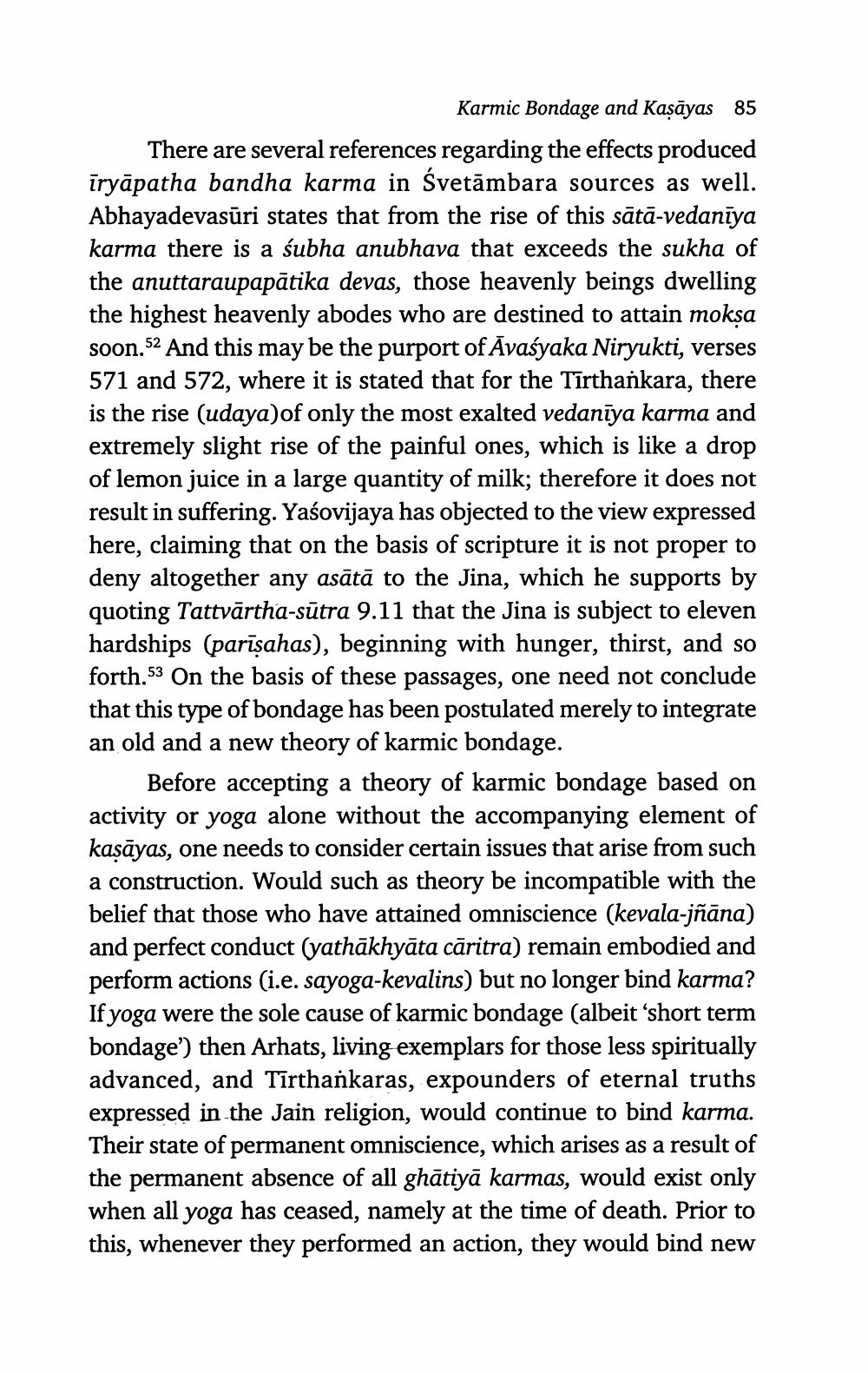________________
Karmic Bondage and Kaşāyas 85 There are several references regarding the effects produced īryāpatha bandha karma in svetāmbara sources as well. Abhayadevasūri states that from the rise of this sātā-vedanīya karma there is a śubha anubhava that exceeds the sukha of the anuttaraupapātika devas, those heavenly beings dwelling the highest heavenly abodes who are destined to attain moksa soon.52 And this may be the purport of Āvasyaka Niryukti, verses 571 and 572, where it is stated that for the Tīrthankara, there is the rise (udaya)of only the most exalted vedanīya karma and extremely slight rise of the painful ones, which is like a drop of lemon juice in a large quantity of milk; therefore it does not result in suffering. Yaśovijaya has objected to the view expressed here, claiming that on the basis of scripture it is not proper to deny altogether any asātā to the Jina, which he supports by quoting Tattvārtha-sūtra 9.11 that the Jina is subject to eleven hardships (parīşahas), beginning with hunger, thirst, and so forth.53 On the basis of these passages, one need not conclude that this type of bondage has been postulated merely to integrate an old and a new theory of karmic bondage.
Before accepting a theory of karmic bondage based on activity or yoga alone without the accompanying element of kasāyas, one needs to consider certain issues that arise from such a construction. Would such as theory be incompatible with the belief that those who have attained omniscience (kevala-jñāna) and perfect conduct (yathākhyāta cāritra) remain embodied and perform actions (i.e. sayoga-kevalins) but no longer bind karma? If yoga were the sole cause of karmic bondage (albeit ‘short term bondage') then Arhats, living exemplars for those less spiritually advanced, and Tirthankaras, expounders of eternal truths expressed in the Jain religion, would continue to bind karma. Their state of permanent omniscience, which arises as a result of the permanent absence of all ghātiyā karmas, would exist only when all yoga has ceased, namely at the time of death. Prior to this, whenever they performed an action, they would bind new




